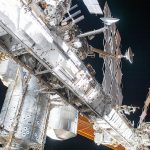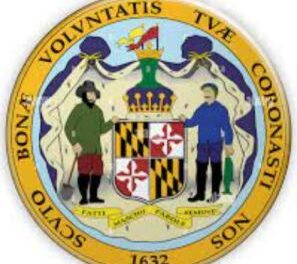The International Space Station is seen in this image taken by ESA astronaut Luca Parmitano. UAB’s School of Engineering’s Engineering and Innovative Technology Development organization has been selected to provide research, engineering and mission integration services for the International Space Station Program. (Luca Parmitano, Wikimedia Commons)
” data-medium-file=”https://www.birminghamtimes.com/wp-content/uploads/2024/02/International_Space_Station_during_first_AMS_spacewalk_ESA21792595-300×200.jpeg” data-large-file=”https://www.birminghamtimes.com/wp-content/uploads/2024/02/International_Space_Station_during_first_AMS_spacewalk_ESA21792595.jpeg” />
By Micah Hardge | UAB News
The University of Alabama at Birmingham School of Engineering’s Engineering and Innovative Technology Development organization has been selected to provide research, engineering and mission integration services for the International Space Station Program.
Along with 11 other entities, UAB will receive a multiple-award, indefinite-delivery, indefinite-quantity contract allowing the opportunity to be awarded task order projects as a part of the $478 million Research, Engineering and Mission Integration Services-2, or REMIS-2, contract.
“This new contract will operate as if we’ve been added to an ‘approved supplier list’ for future opportunities that arise,” said Chad Duke, P.E., director of the UAB EITD. “The award grants us the ability to essentially bid on task orders that come out under the duration of the contract.”
The seven-year contract began in January 2024 and extends through Sept. 30, 2030, with an option to extend through Sept. 30, 2032.
“The REMIS-2 contract is a tremendous opportunity for our group and reinforces our commitment to excellence in this field,” Duke said. “We are excited about this new opportunity with hopes that it allows us to expand our offering of hardware and services within the NASA community and beyond.”
To read more about the work of EITD, click here.
The EITD group was created to support the development of specialized research instruments for ground- and microgravity-based research experiments. Under the direction of Duke, EITD serves as one of the nation’s leading developers in thermal controlled hardware for use in microgravity and aspires to provide hardware for operations beyond low Earth orbit.
Prior to the awarding of this recent contract, EITD’s work in thermal controlled systems had established a baseline of consistency and excellence with NASA under multiple previous contracts. EITD currently offers a range of options in size, temperature range, cooling rate and sample containment. With a team of experienced engineers and technicians, EITD specializes in the design, development and commercialization of innovative hardware and software systems for the aerospace and life sciences industries.
For more information about NASA and its programs, visit www.nasa.gov.











